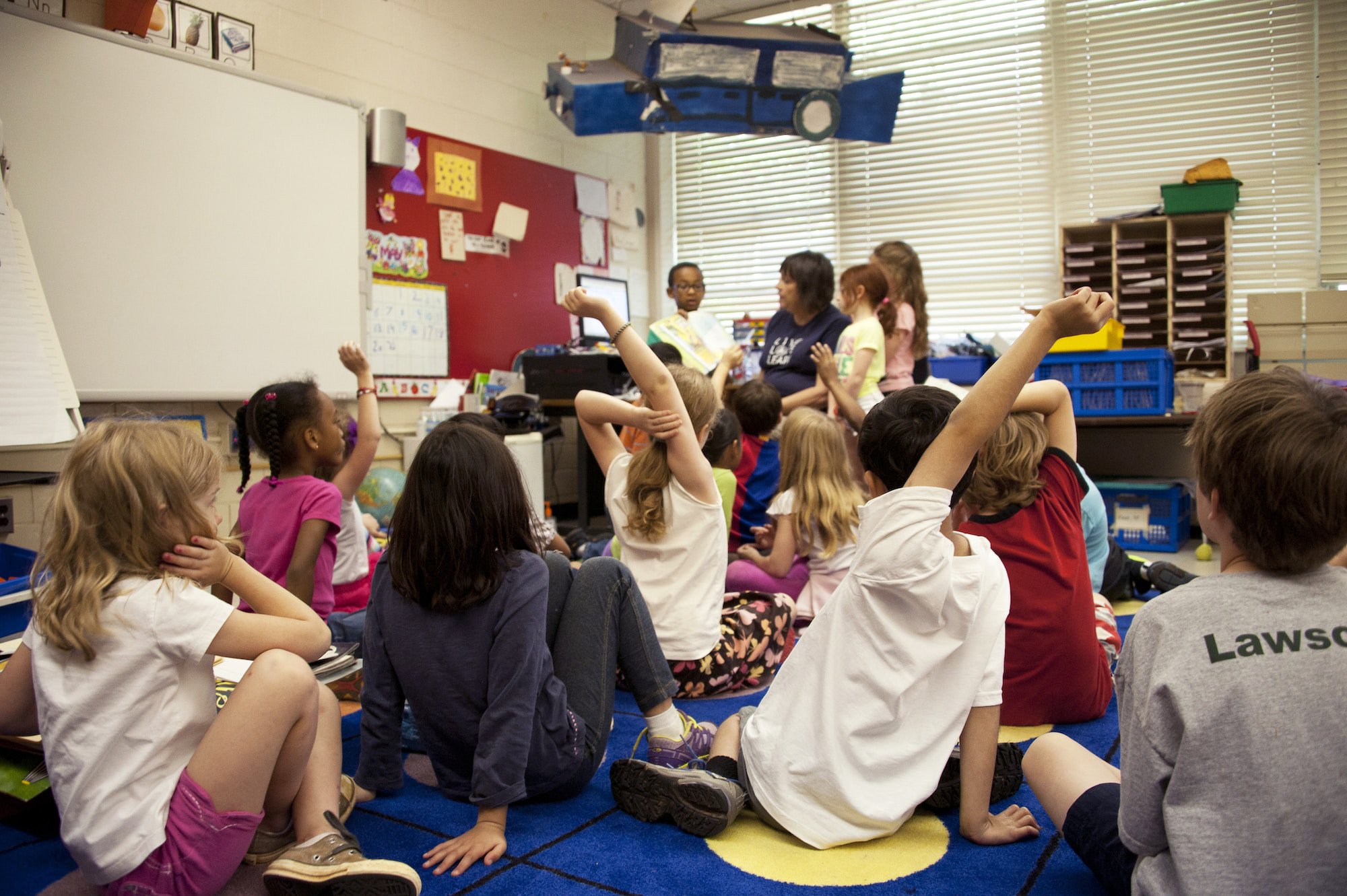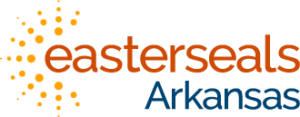
Did you know that high-quality early childhood education can benefit young children’s academic and social outcomes in the future? This is why enrollment in developmental preschools is a great option for your child.
Developmental preschools focus on providing your child with experiences that help them grow physically, socially, emotionally, and cognitively. They cover everything from activities that aim to improve your child’s motor skills to those that will enhance their social and communication abilities.
If your child has special needs, developmental preschools in the Little Rock and Stuttgart areas of Arkansas offer pediatric therapy and special education to help them progress and reach their goals. A little research will help you find the best fit for your child, and this article covers everything you need to know.

Benefits of Developments Preschools
Improved Cognitive, Social, and Emotional Development
Preschools that focus on child development offer a fantastic learning environment for young children to acquire new skills and flourish. These schools enable children to enhance their problem-solving, language, math, literacy, and critical thinking abilities. Moreover, children can enjoy themselves while learning through engaging activities, such as play-based learning.
But that’s not all—developmental preschools also help children learn how to socialize and make friends. They provide an interactive space where children can learn to develop their social skills. As a result, they learn to share, take turns, and negotiate with others, all of which are essential skills they’ll need as they grow up.
In addition, developmental preschools help children develop emotionally by providing a safe and nurturing environment where they can express their feelings and learn healthy ways to cope with stress and anxiety.
Enhanced Language and Communication Skills
A language-rich environment is essential to the development of young children’s communication skills. Therefore, parents need to consider how a school provides language-focused experiences, such as listening, speaking, reading, and writing.
To enhance language and communication skills, developmental preschools employ various techniques. For example, teachers actively engage children in interactive activities, such as puppet shows and songs, to stimulate their creativity and encourage self-expression. They also utilize storytelling and picture books to introduce new words and concepts.
Early Identification and Intervention
Early childhood education programs focusing on developmental interventions and support are essential in identifying and addressing developmental delays and disabilities.
Upon detecting an issue, specialists collaborate with families to develop a customized resolution plan, which could entail collaborating with therapists, providing specialized instruction, or leveraging assistive technology. Early intervention aims to equip children with the necessary skills to excel both academically and in life while minimizing the effects of delays or disabilities.
Inclusive Environment
Developmental preschools provide individualized instruction and promote socialization while fostering a sense of independence and self-confidence in children. They achieve this by allowing children to make choices, take risks, and solve problems independently.
Doing this enables children to develop a strong sense of self and belief in their abilities. This is especially important for children with disabilities, who may encounter challenges and obstacles in their daily lives.
Individualized Learning Plans
In a developmental preschool, educators recognize each child’s distinctive talents, capabilities, and areas for growth. Utilizing personalized learning strategies, skilled instructors and therapists create individualized education plans that cater to the diverse requirements of each child.
Meeting the Needs of Children with Special Needs
Understanding Challenges Faced by Children
Children with disabilities often face communication challenges, where expressing themselves and understanding others becomes difficult. This can hinder their ability to make friends and participate in social activities. Developmental preschools recognize the significance of communication and strive to create a supportive environment that encourages children to express themselves uniquely.
Importance of Inclusive Education
By embracing inclusion, we can create an environment where all children feel valued and supported, leading to positive outcomes for everyone involved.
Inclusive education benefits not only your child but also your family and society. It promotes empathy, respect, acceptance of diversity, and other essential values children can carry. In addition, by learning alongside children from diverse backgrounds, your child can develop a broader perspective and a better understanding of the world around them.
Strategies for Adapting Curriculum and Collaborative Efforts
As a parent, it’s important to know that teachers can make a considerable difference to your child’s learning.
To help your child succeed, teachers should take the time to understand your child’s individual needs. They should use various teaching methods that engage the child’s senses, such as visual aids, hands-on activities, and movement-based learning.
By working together, everyone can better support your child’s learning and help them achieve their academic goals.
Role of Pediatric Therapy in Empowering Children
Pediatric therapy services can be helpful for children who experience difficulties with their physical, emotional, or thinking abilities. Licensed healthcare professionals, such as physical therapists, occupational therapists, speech-language pathologists, and mental health professionals, provide pediatric therapy services.
It’s important to start helping children who experience difficulties as early as possible because it gives them a better chance to improve and reach their full potential in life. In addition, addressing difficulties early on could avoid more significant problems in later life.

Different Types of Pediatric Therapies
Children face many emotional, psychological, and developmental challenges that can affect their well-being and hinder their growth and development. Here are some of the most common therapies available to children and their parents or involved family members.
- Pediatric occupational therapy focuses on helping children develop the skills they need to perform daily activities, such as dressing, feeding, and playing. Through various exercises and activities, occupational therapists help children develop fine motor skills, sensory processing abilities, and cognitive skills to enhance their independence and participation in daily life.
- Pediatric speech therapy focuses on helping children develop communication skills, such as speech, language, and social communication. Speech therapists work with children who have difficulty with speech sounds, language comprehension, expression, fluency, voice, or social communication. Feeding issues also can be addressed through speech therapy, and Easterseals Arkansas has a one-of-a-kind feeding clinic to address pediatric feeding disorders.
- Pediatric physical therapy focuses on helping children develop physical abilities such as strength, flexibility, balance, and coordination. Physical therapists work with children who have conditions that affect their movement or physical abilities, such as cerebral palsy, Down syndrome, or injuries. By implementing a range of therapeutic techniques, such as exercises, stretches, and manual therapy, physical therapists help children achieve their physical goals, promote growth and development, and increase mobility.
Importance of Partnership between Preschools and Parents
Collaboration between preschools and parents is crucial in supporting a child’s development. The following points highlight the importance of this collaborative approach.
Regular communication and feedback between teachers and parents
Communication between teachers and parents is key in ensuring that children receive the necessary support and resources for their development. Through regular updates, teachers can provide feedback to parents on their child’s progress and areas of improvement.
Involvement of parents in goal setting and progress monitoring
Parents must be involved in goal setting and progress monitoring. Through collaboration, parents and teachers can identify areas that need improvement and create a plan to help children achieve their goals.
Empowering parents to become champions of their child’s education
As partners in their child’s education, parents play a critical role in championing their child’s needs. Preschools can empower parents by providing them with resources and tools to support their child’s education and by involving them in decision-making processes.
Developmental Preschools in Little Rock and Stuttgart Area
Easterseals Arkansas operates two inclusive developmental preschools in Arkansas, offering high-quality early childhood special education and pediatric outpatient therapy services.
Little Rock Developmental Preschool provides education and therapy services to children aged three months to 5 years.
Stacey & Allen Homra Child Development Center provides services to children aged six weeks to 5 years, located in Stuttgart, Arkansas.
Both preschools serve children with developmental disabilities, special needs, and autism, as well as those without disabilities.
The staff dedicates themselves to preparing children for kindergarten and ensuring they receive the highest quality care possible. Better Beginnings has awarded three-star ratings to both preschools, indicating their excellence in early childhood education and care.
Both preschools provide a nurturing environment that promotes the child’s overall development and offer family engagement opportunities, parent education, and support groups to help families support their child’s growth. The state’s commitment to early childhood education, evidence-based practices, and partnerships with families and communities contributes to the success of these preschools.
Together, Let’s Empower Your Child’s Future
Sending your child to preschool is a valuable means of helping them succeed in the future. At preschool, children learn life skills, such as communicating with others, problem-solving, and critical thinking. They also grow and learn in a safe and caring environment that helps build their confidence and self-esteem. Providing your child with a preschool education prepares them for a successful academic and social future.
Are you passionate about creating a more inclusive society? Do you believe everyone deserves the opportunity to thrive and succeed regardless of their abilities? Then join us at Easterseals Arkansas and help us empower individuals with disabilities.
Together, we can make a difference and ensure everyone can access the resources and support they need to live their best lives. Visit our website today to learn more about our mission and how you can get involved!

